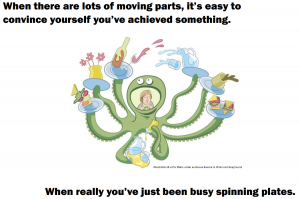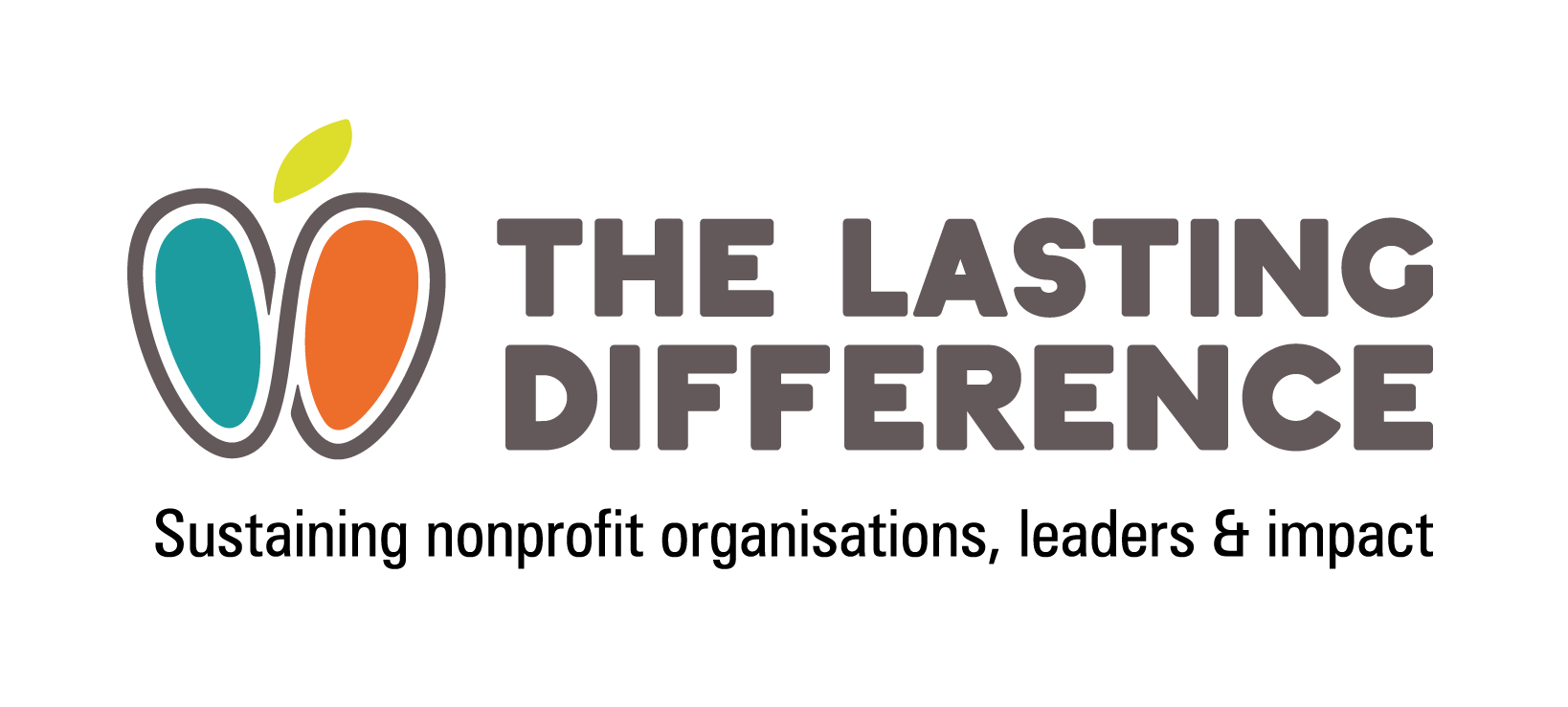Imagine if there were a simple way to make decisions in a complex world. Imagine being able to manage your limited capacity. And wouldn’t it be great if your whole team focused on the same thing?
The good news
You already have all this.
The bad news
Is it working?
The value of single focused goals
You already have a clear, focused goal. It’s at the top of your strategic plan: your vision, mission or aim. It’s the reason your organisation exists. You spent time developing and defining it. Which was worth it, because you use every day it to make decisions, manage capacity and stay focused. Don’t you?
How much time do you spend every day doing things that contribute directly to your mission?
As Stephen Covey said, ‘The main thing is to keep the main thing the main thing.’
On a sunny day in June 2019, I looked out over the Loch Lomond landscape from our retreat at Ardoch Management Centre. 16 inspiring leaders were creating a buzzing, transformative experience that would stay with them for life. My eye caught Jen Curran’s as we shared the same thought: ‘This is what we should be doing’. A casual moment that led to the hardest, most important six months of the company’s life.
Are you focused – or led?
There’s a fine line between being customer-focused and customer-led. You’ll never sustain your work if you don’t focus on your beneficiaries, funders and supporters. But the same applies if you allow yourself to be led by every different demand that is made of you.
In our case, we set our strategy in 2019. Our main goals were for our work to be enjoyable and for the Lasting Difference to be the go-to guide to sustainability in the UK by the end of 2020.
Having set the goals, we then got on with our jobs. And the more time we spent on our jobs, the less we had left to put into our mission. We weren’t practising what we preach about the importance of saying ‘no’. We needed a reset. After years of facilitating other people’s strategy weekends, we had one of our own. We based it on a thorough analysis of all our work using this simple but powerful template. We used four criteria to assess the value of each piece of work: income, impact on clients, impact on us and enjoyability.
The results were clear: we weren’t focused on the work where we make the most impact. Now, we no longer do external evaluations and we facilitate fewer one-off events, particularly for small or local organisations. If something doesn’t further our aims we can’t afford to do it.
Letting go
Strategic decisions like these mean letting go: strategy is as much about what you won’t do as what you will. In our case, we had to let go of the Lasting Difference Manager role we’d invested in over a year and half. We lost a valued colleague. We let go of the need to be all things to all people, which is as hard for us as it is for the charities we support. We also accepted that we’d lose around 40% of our turnover during 2020/21. Really, we see this as a gain: we’re gaining 50 days a year for developing strategically vital things. Things like the Lasting Leadership guide, the free resources we share in our new weekly newsletter, and the eight new workshops we’ve already started running successfully.

When you do the analysis of how your time is spent and where your money comes from, the facts become clear. As do the decisions you must make. Following through may be harder, but you’ll never achieve your goals without giving them the time and attention they need. Saying yes to everything might bring more revenue for a while, but that’s not why you (or we) exist.
Since Covid hit, we’ve honed our strategy to adopt one single focused goal: to get the Lasting Difference toolkit to every charity and social enterprise that needs it. It’s why we made the toolkit available without email sign up for the first time in 3 years.
Single focused goals are challenging but they bring their own rewards: the satisfaction of steering your own course and making an impact every day. I’d still love to say yes to every offer of work we get, but there are only so many hours in a week, weeks a year and years in our career. We’re here for the long term, and we have a single-minded focus on making a lasting difference.
Our next newsletter shares some practical time management tips and tools. For now, here’s a question I’ve started asking every day:
‘Is this the most strategically important thing I can be doing right now?’
